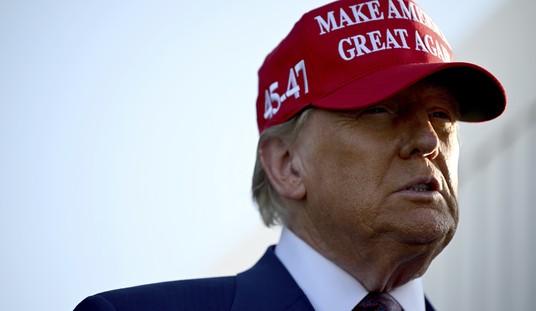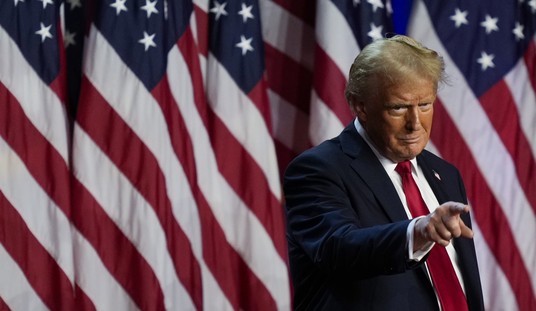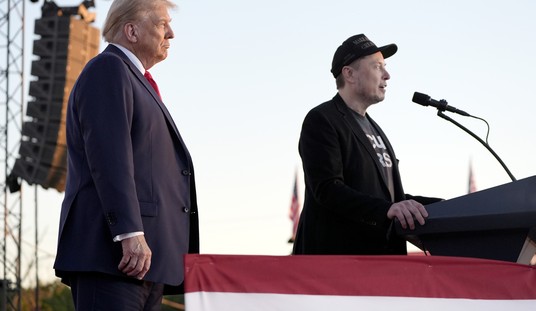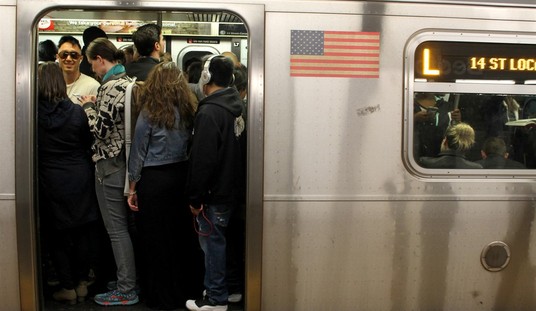Although he left office a personally popular President in spite of two scandal-plagued terms, Republicans prophesied that before long, history would begin to remember Bill Clinton as a marginal President; a merely adequate caretaker of an economy that ran on a tech bubble and who ignored the growing turmoil of global Islamic terrorism.
Hillary Clinton has staked a huge bet this election season on the idea that voters do not agree, or at least not yet. She announced earlier this week that she was going to put Bill Clinton “in charge of revitalizing the economy” – a strange boast for someone who’s been selling the idea that that the economy is just fine on the campaign trail. Nevertheless, the bet from Camp Clinton is that people will have nostalgia for the economy of the 1990s, if nothing else.
What Hillary is finding is that this particular trial balloon is going over like it was made of lead. Not only has it invited reconsideration of her husband’s checkered personal behavior, it has opened an avenue for Bernie Sanders to attack her from the left on a whole host of issues, from welfare reform to the Defense of Marriage Act. But, surprisingly for Clinton, she also finds Clinton being attacked – successfully – on economic issues.
At least two phenomena can trace some roots in that insecurity: Trump’s capture of the Republican party and the remarkably persistent challenge ofBernie Sanders to Clinton’s Democratic nomination. Both rest on their shared critique of Clinton-era free trade deals, and both opponents blame the 1994 North American Free Trade Agreement (Nafta) and the permanent normalisation of trade relations with China in October 2000, which they say began a hollowing of US manufacturing that accelerated under George W Bush and Barack Obama.
Sanders in particular has singled out Clinton’s reform of welfare entitlements for exacerbating US poverty rates and removing a vital safety net once the economy turned sour.
The collapse in middle class incomes since the banking crash of 2008 can also arguably be traced back to Clinton’s decision to remove many of the restraints on Wall Street.
Recently revealed documents show two separate attempts by bank-friendly advisers, in 1995 and 1997, to hurry Clinton into a repeal of the Glass Steagall Act, which prevented investment banks, insurers and retail banks from merging.
A Financial Services Modernization Act was passed by Congress in 1999, giving retroactive clearance to the 1998 merger of Citigroup and Travelers Group. The law also unleashed a wave of Wall Street consolidation that was later blamed for forcing taxpayers to spend billions bailing out the enlarged banks after the sub-prime mortgage crisis.
Even Bill Clinton’s own Labor Secretary, Robert Reich, has become a major critic of the administration’s legacy – and emerged as a powerful cheerleader for Sanders instead.
A lot of this stuff is complete poppycock from an economic perspective, but if Clinton’s economic legacy emerges from this election season permanently tarnished, the Democrats will have at the very least lost one of their arrows in their rhetorical quiver, and it will be substantially more difficult for Hillary to actually win this election.
On the other hand, it’s probably a bad thing for the long term health of the country for the idea that free trade, welfare reform and deregulation are bad for the economy to calcify in the public’s mind. However, we may well be past the point of no return on the idea that capitalism is a principle worth saving.













Join the conversation as a VIP Member